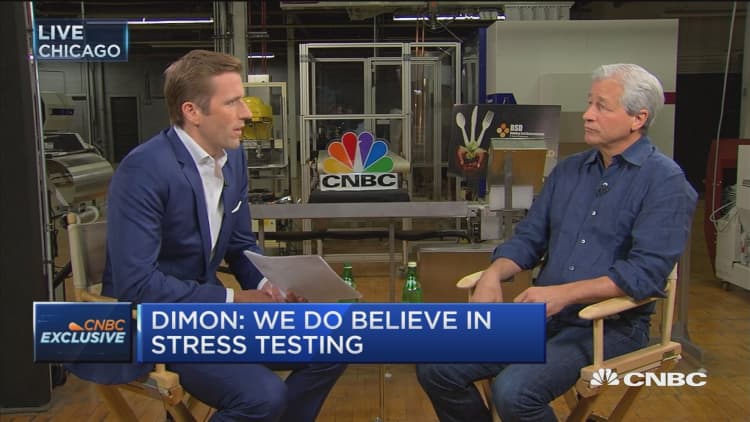
JPMorgan Chase CEO Jamie Dimon stopped short of saying the bond market is on the cusp of a collapse, but said he wouldn't personally buy any long-term government debt.
"I'm not going to call it a bubble, but I personally wouldn't be buying a 10-year sovereign debt anywhere in the world," he told CNBC on Tuesday.
"My view is the Fed is doing the right things, raising rates, telling people we're going to start reducing the balance sheet," Dimon added.
The CEO spoke after former Federal Reserve Chairman Alan Greenspan warned on Friday that the bond market could collapse and it will also threaten stock prices. Once it starts "it will be rather rapid," he added in a CNBC interview.
Since December 2015, the Fed has approved four rate hikes, but government bond yields remained mired near record lows.
"I'm not concerned for JPMorgan because we'll be fine whatever the environment is," Dimon said in a wide-ranging interview with CNBC's "Squawk Alley."
The likely scenario is that the bond market will all right and the Fed reducing its balance sheet will not be disruptive to the U.S. economy, Dimon said. Although there is always a chance the central bank could be disruptive, he added.
"We've never had the reverse of QE 1, 2, or 3 before. If you see the ECB doing it and the United States doing it and maybe the environment is not the environment that people expect. People can not predict the future," Dimon said.
Over the past several months, the Fed has prepared markets for the upcoming effort to reduce the $4.5 trillion it currently holds of mostly Treasurys and mortgage-backed securities. The balance sheet ballooned as the Fed sought to stimulate the economy out of its financial crisis morass.


